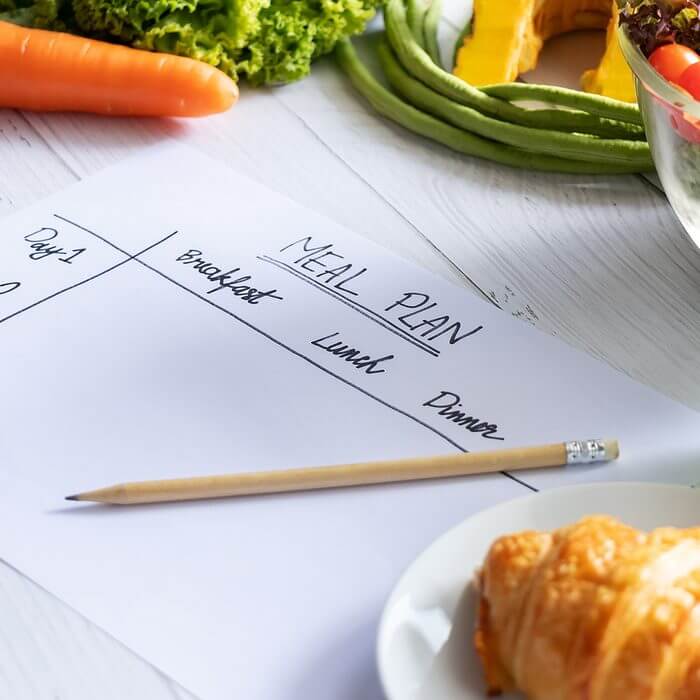The journey to zero-waste living takes time and commitment. It’s best to start with a few changes, stick with them until they are habits and then move on to making more changes. Once you break the cycle on a few elements in your life, you’ll find it much easier to keep making progress.
A great place to start, where you’ll see a lot of impact in your life, is in the kitchen. We can generate a lot of waste through food packaging, cooking leftovers and keeping such an important room clean. However, there are many ways to make positive changes that won’t impact your lifestyle, such as:
1. Create Weekly Meal Plans
The biggest elements of waste in a kitchen come from unused or uneaten food. This could be leftovers that never get eaten or food going off before you get round to using it in a meal. There is a simple way to combat this: create weekly meal plans and only buy the exact ingredients you need.
You can also think about recipes that complement each other and use the same ingredients so that you know you’ll use that entire bunch of carrots that week or you can save a little bit of money by buying eggs in bulk.

2. Buy In Bulk Or Just Bigger
Speaking of buying in bulk, this is another great step towards a zero-waste lifestyle. By buying more of something in one go, you are usually going to end up with less packaging because, for instance, you are buying this item once a month instead of several times a month.
If you know you aren’t going to use all of the item, team up with a friend or a neighbor so you split the costs, the packaging and the product.
3. Switch To Reusable Containers
A great way to reduce your waste is to quit single-use items and get yourself a set of reusable containers and bags – it’s even better if you can make sure that none of them are actually plastic. Cloth bags are great for your groceries and can be washed in between use if anything spills.
You also get small mesh cloth bags for putting your vegetables in at the shops instead of those thin plastic bags the stores provide. Glass containers are great for storing your pantry staples like flour, nuts, pasta, honey, and even milk. Go for metal containers for your meats.
The thing is, you need to then go to shops that allow you to bring your own containers and fill up using them. The product is then weighed without the weight of your container.
4. Grow Your Own From Scraps
There is so much you can do with your scraps rather than just chucking them in the trash. Coffee grinds make great body scrubs, vegetable peels and ends can be turned into stock for soup you can sip on while browsing NRL betting sites, etc.
To go for the ultimate zero-waste option, you can even start your own vegetable and herb garden from your scraps. Carrots, potatoes, onions and more can all be grown from the bits you would normally just throw away.